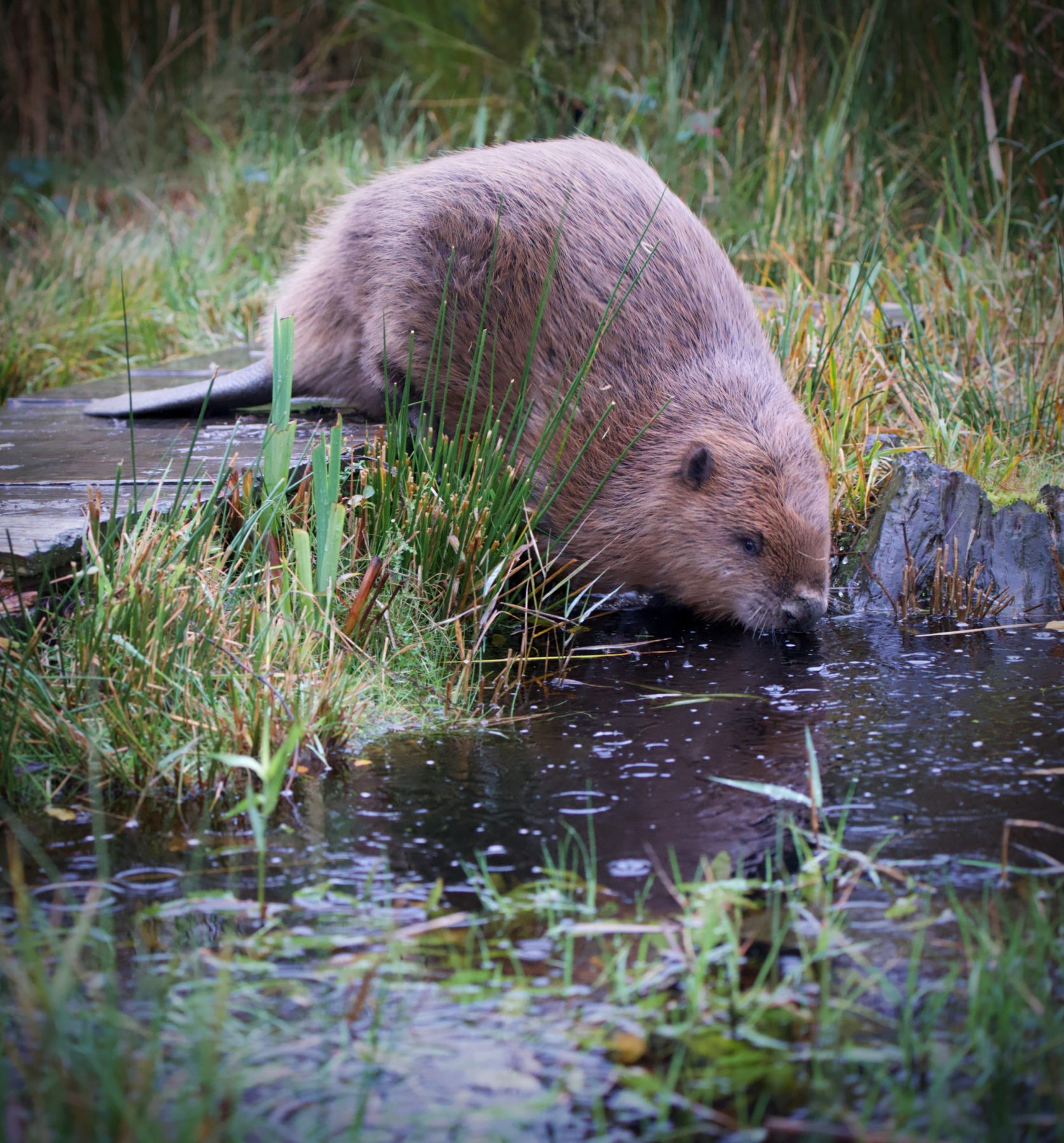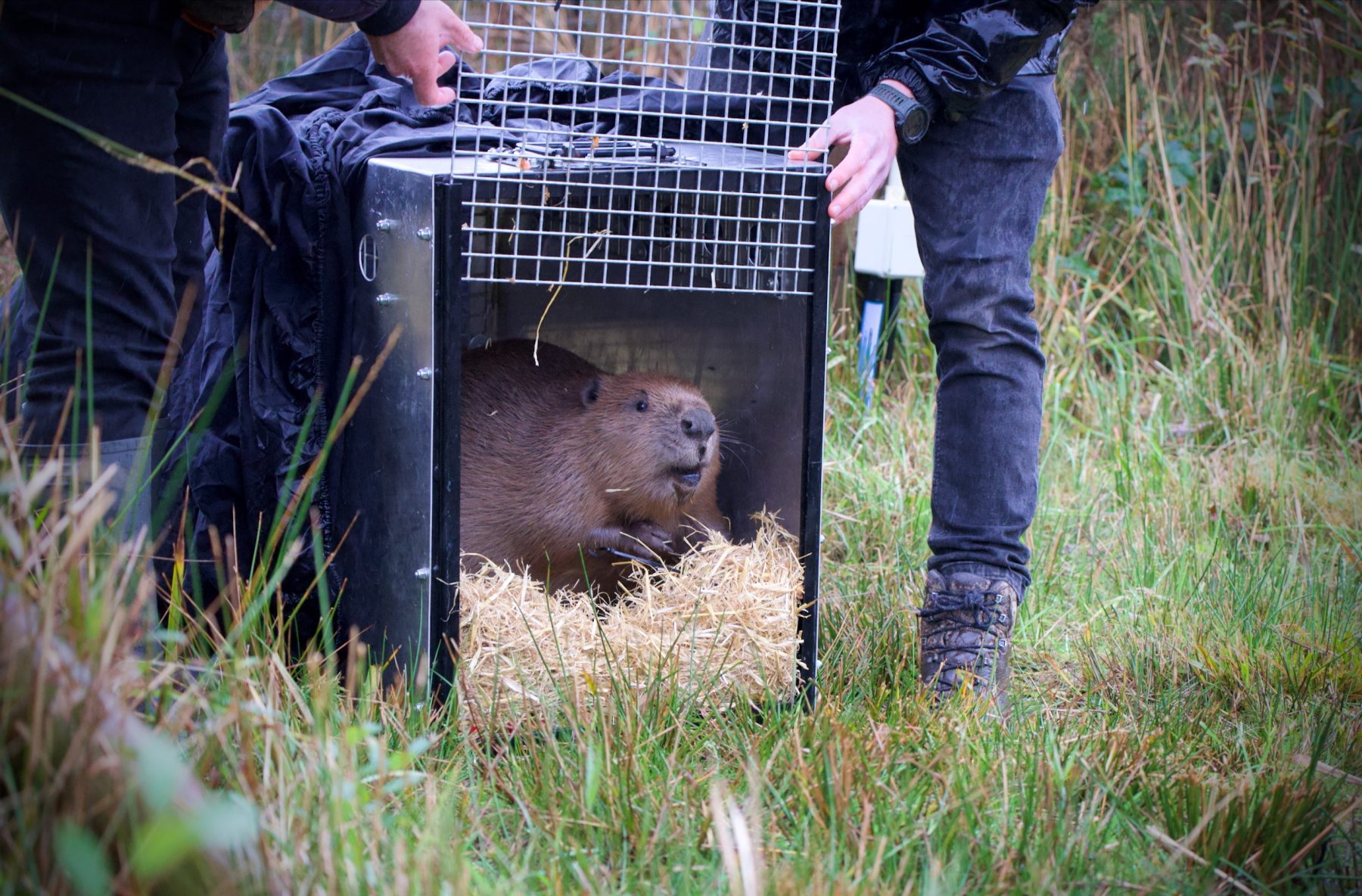In a historic first, a London beaver has journeyed to Wales to help establish a new family and strengthen Britain’s growing beaver population.
The Ealing Beaver Project, the UK’s first urban and fully accessible beaver enclosure, has translocated one of its young females to the Dyfi Osprey Project in mid-Wales. There, she will join a male beaver named Barti in the hope that the pair will start a family and contribute to the wider recovery of beavers across the country.
The move marks a milestone for both projects and reflects how urban rewilding can actively support national conservation goals.
The Ealing Beaver Project, a collaboration between Ealing Wildlife Group, Citizen Zoo, Ealing Council and Friends of Horsenden Hill, with support from Beaver Trust, has become a model for coexistence between people and wildlife. Since the beavers’ arrival, antisocial behaviour in the area has fallen by 90%, and the nearby train station has not flooded during heavy rainfall thanks to the beavers’ natural dam-building which holds back water. Nature across the site has also flourished and their engineering has also increased the site’s resilience to drought during what has been the driest year on record.
Beaver families are typically led by a dominant female and after about three years, young beavers naturally disperse to establish new territories. Because Ealing’s beavers live within an enclosed site, dispersal opportunities are limited. Working with Beaver Trust and the Dyfi Osprey Project, the Ealing team captured and translocated one of its young females to Wales to ensure natural growth and genetic diversity within mainland Britain’s beaver population.
The fact that London’s beavers are now helping to restore wetlands beyond the city is a testament to what urban rewilding can achieve. While it’s important that she can contribute to recovery efforts in Wales, her journey also highlights the limited space currently available for beavers within London. Through the London Beaver Working Group, partners are working to expand suitable wetlands and create new sites so that, in future, more beavers can disperse and thrive across the capital.
Dr Sean McCormack, Ealing Beaver Project lead and licence holder, said: “After many late nights and early mornings trapping, I’m delighted we caught one of our eligible Ealing Beaver daughters to help start a new beaver family in Wales. All of our beaver community in Ealing are thrilled our project could help and hope she settles in well with Barti in the glorious setting of Cors Dyfi. Perhaps any offspring they have together will form the foundations for future wild beaver populations in Wales as the valued, native and protected species they are.”
Elliot Newton, Co-founder & Director of Rewilding for Citizen Zoo, said: “This story captures exactly what rewilding should be about – connection, collaboration and hope. Our London beavers have already transformed Paradise Fields, showing that wildlife can thrive alongside people in cities. Now, one of the females will help breathe new life into a Welsh wetland. It’s an inspiring reminder of how local action can create national impact.”
Alicia Leow-Dyke, Welsh Beaver Project Officer for the Wildlife Trusts in Wales, added: “It is wonderful to see the arrival of a new female to the Cors Dyfi enclosure for our male Barti. Working closely with Beaver Trust and the Ealing Beaver Project, we were able to find a suitable mate for Barti. We look forward to seeing her settle into her new home. She is certainly well-travelled, originating in Scotland before living in London and now Wales!”

Emyr Evans, Dyfi Projects Manager at Montgomeryshire Wildlife Trust, said: “This collaboration with the Ealing Beaver Project is instrumental to the success of our landscape restoration initiative. Our newly arrived female beaver will play a vital role in natural re-wetting, which is key to re-establishing Cors Dyfi reserve as a thriving wetland peat bog and delivering long-term biodiversity benefits.”
Dr Roisin Campbell-Palmer, Head of Restoration at Beaver Trust, added: “It’s wonderful to see this pair come together so successfully. Behind this moment is a great deal of careful planning by both the Ealing Beaver Project and Montgomeryshire Wildlife Trust to ensure both animals were ready for introduction. This success is a real testament to responsible beaver management, and we’re excited to see how this new pair settle in.”
The Ealing Beaver Project continues to demonstrate how urban rewilding can inspire national change, building resilience, restoring ecosystems and strengthening the connection between people and the natural world.

